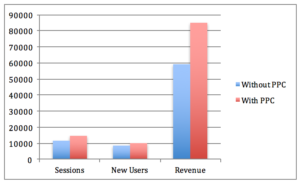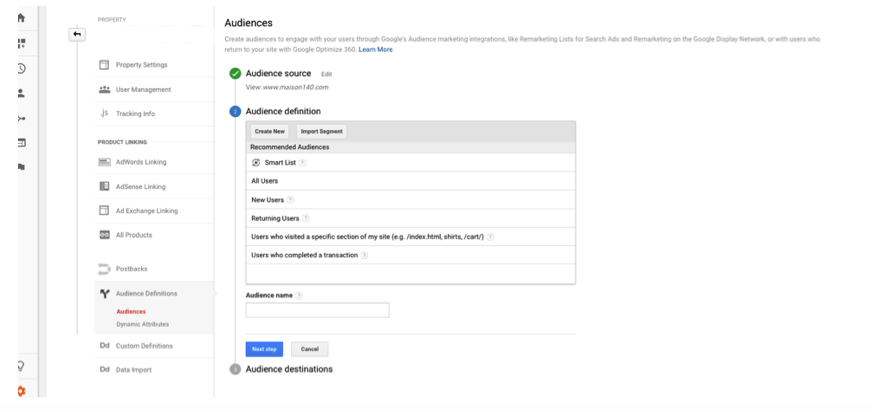A Hotelier's Guide: How to Optimize for Voice Search
Voice search is the latest buzz in the digital marketing community. With companies like Gartner predicting that by 2020, 30% of searches will be voice, hotel marketers are eager to know if their businesses are optimized for this new channel.
While it may be the shiniest new marketing object to catch your attention – it’s important to first understand what this technology is, how it works and how it may disrupt the market in order to determine how it will (or won’t) change the way you need to approach your hotel’s digital marketing strategies.
FIRST, WHAT IS VOICE SEARCH & HOW DOES IT WORK?
When people use the term “voice search” they are usually speaking of one of two different areas –home assistants (think Google Home, Amazon Echo with Alexa) and voice search using your phone’s technology such as Siri to return results on a screen. The latter technically being defined as “dictated search”. We’ll dive into both to make sure your best prepared for the latest disruption in search engine marketing for hotels.
HOW DO HOME ASSISTANTS WORK?
Amazon Echo/Alexa and Google Home are currently leading the market for voice assistant devices. This area of voice search is, at its core, screen-less. That means one-answer responses, not a list of responses presented in search engine results format. It wasn’t until Amazon launched its Echo Show that home assistants started to incorporate screens into their devices. Now more home assistant devices, like Google Home, are incorporating or planning to incorporate screens into home assistant devices.
HOW DOES DICTATED SEARCH WORK?
The other area included under the topic of “voice search” is search that uses voice command to pull up search engine results on a screen. This is more accurately defined as dictated search. This includes the use of Siri on your iPhone or Google Voice Search on your android or other devices. Does the use of voice dictated search change the way Google returns results?
Home assistant devices and dictated search through Siri (and other mobile devices) are two very different voice search experiences. One relies on providing a variety of results on a screen and one relies on voice responses to answer your questions. Next, let’s dive into how consumers are using voice search with each of these device types.
SHOULD HOTEL MARKETERS BE WORRIED ABOUT VOICE SEARCH?
Voice assistant device voice search has been hard for marketers to break into considering there’s limited space available for exposure with only position O returned as a result and no space for advertising like the typical SERPs provide. The lack of screens have also made it difficult for consumers to perform travel research since they depend on imagery and visiting multiple sources for information before they are ready to book. For this reason, voice assistants haven’t made a huge impact on how people book hotels and travel. There is a possibility that this will change soon as both Amazon and Google are launching voice assistants with screens to provide more options and the opportunity for advertisements, just like the standard mobile SERP. This article from Lisa Lacy at Search Engine Journal does a phenomenal job at diving into how this changes the optimization game.
People are using voice assistant devices for everything from playing music, controlling home gadgets to ordering products online. But, how are they using these devices to plan travel or book hotels? With one-answer response capabilities provided by voice home assistants, the experience isn’t great. Maybe you’d have success using the device to book accommodations if you knew exactly which hotel you wanted to book at or if you were just looking for the nearest, last minute hotel. But in our experience testing voice assistant devices to research hotels, interacting with these devices for travel research is extremely frustrating.
HOW CAN HOTEL MARKETERS OPTIMIZE FOR VOICE SEARCH?
Let’s get down to the question that every hotelier wants to know, how exactly can hotels optimize for voice search?
The truth is, hotel marketers should be focused on a multi-device optimization strategy. The success factors you were focused on for your overall strategy previously are the same ones that you’ll need to focus on for voice searches. Yes, the way people dictate search and the devices used changes the game slightly but you shouldn’t ignore other, more lucrative channels in favor of changing everything for voice search. A few ways to expand your multi-device strategy to incorporate more voice search specific optimization includes:
- Well built out and optimized FAQ pages and website content – being the content selected for Google’s answer boxes has long been touted as a solid strategy for being selected for that “position zero” spot. Hotels should focus on building out a FAQ page that answers questions about the hotel, the local area and any other common questions related to the hotel.
- Targeting question keywords and near search terms – a large portion of voice search is presented in the form of questions or consumers looking for local/nearby businesses. For hotels this means that they need to expand content on their site to answer questions (i.e. FAQ page) and to target “near” search terms such as “hotel near X” to qualify for these types of searches.
- Local Search optimization (local listings/GMB/reviews) – The capabilities voice assistants can offer for hotel related search seem to be limited to displaying hotel information in the form of local listing profiles such as Google My Business. These means your local search optimization game needs to be strong with a huge focus on encouraging guest reviews and up-to-date, accurate listing details.
- Using Meta Search – Currently Kayak offers the only voice command to book a hotel through Alexa, which actually books it’s inventory through Booking.com or Priceline.com. Seems like one of the only ways for hotels to be visible on voice home assistants currently is through participation on OTAs and Meta Search engines.
- More focus on tracking calls as conversions – other than Kayak offering ways to book hotels through voice assistants, the only other type of conversions presented for this type of search is to ask for directions or to call the hotel. As more and more traffic shifts to mobile and voice-activated search, hotels can no longer ignore that accurate call tracking solutions must be used to ensure you can optimize your campaigns and strategy effectively.
- Make sure your site is secure – upgrade your hotel website to HTTPS now if you haven’t already
- Implement Schema.org Structured Data Mark-up on your site
- Ensure your hotel website is mobile friendly
CAN HOTEL MARKETERS USE PAID SEARCH TO BE PRESENT IN VOICE SEARCH?
Depends on what type of voice search you’re referring to – dictated search or voice assistants. Currently there are no options for paid search ads on voice assistants search. One way to pay and be visible in this space is through metasearch (i.e. Kayak – Alexa). Since using dictated search (i.e. on Siri) pulls the same displayed SERP results as when you type your search queries this allows for the same advertising capabilities and paid text ads will be shown.
WHAT NEXT: THOUGHTS ON VOICE SEARCH & PREDICTIONS FOR HOTEL MARKETERS
Hotel marketers should keep in mind that “voice search” is just a new interface and that the same elements that were vital to success before will continue to be vital for success in voice search. Focus on schema.org mark-up, focus on making your site secure and mobile friendly and make sure local SEO is a cornerstone of your strategy and you’ll be well positioned for success with voice search.
Next, keep an eye on this evolving technology. Consumers depend on visual elements to properly research and book travel and hotels. As more voice activated home assistants incorporate screens into the mix it will offer more opportunities for hotels to participate.
Finally, the consumer demand for using AI and voice commands are going to expand to interaction with your hotel directly. Technology such as chat bots and ways to ensure customer service expectations are being met or exceeded through any method they want to interact with will become more important
Have more questions about how voice search works and how to prepare your hotel for success? Reach out to the team at GCommerce today.




